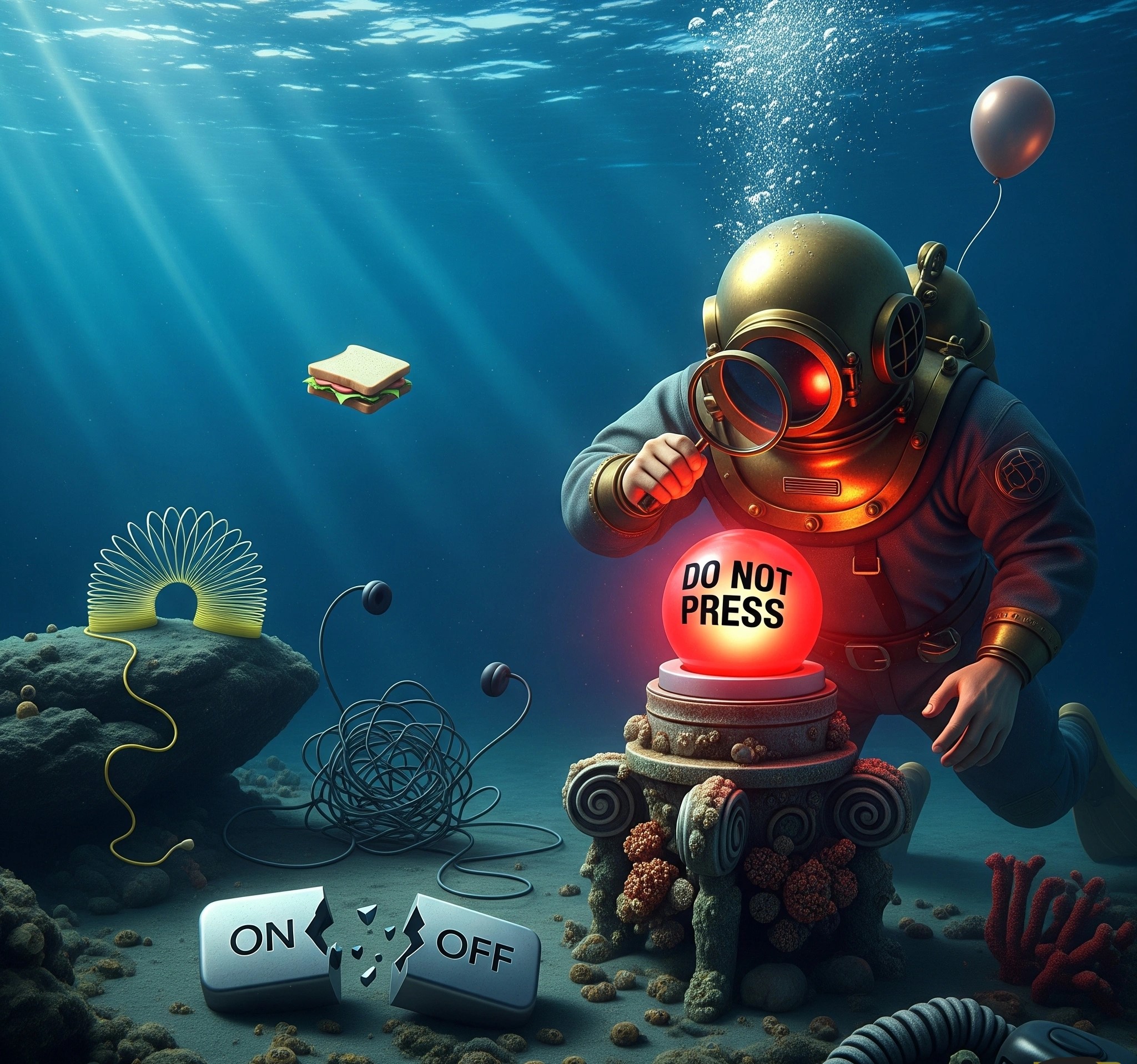A Deep Dive Into Uselessness: Why It Matters

In a culture that relentlessly worships productivity and tangible outcomes, the concept of "uselessness" is often cast aside as the ultimate failure. We are told that our actions, our hobbies, and even our thoughts must serve a purpose—they must build a skill, earn money, or contribute to a measurable goal. But what if we've got it all wrong? What if embracing uselessness is not a flaw, but a profound act of liberation and a critical component of a fulfilling life? Let’s take a deep dive into why purposelessness might be one of the most useful concepts we can embrace.
The Tyranny of the To-Do List
Our lives have become a series of tasks to be checked off. We move from one productive activity to the next, often without pausing to ask if the activity itself brings us joy. This obsession with constant forward momentum creates a state of perpetual stress. The pressure to justify every moment with a productive outcome leaves little room for spontaneity, curiosity, or simple existence. Uselessness, in this context, is a rebellion against this tyranny. It's a conscious decision to step off the hamster wheel and reclaim moments purely for the sake of experiencing them, free from the burden of justification.
Uselessness as the Cradle of Creativity
Creativity rarely emerges from a rigid, goal-oriented mindset. The most innovative ideas often come from moments of mental wandering, daydreaming, or engaging in activities that have no apparent purpose. Think about a child who spends hours building an intricate sandcastle, only to let the tide wash it away. The "uselessness" of the final product is irrelevant; the process itself fosters imagination, problem-solving, and pure joy. For adults, this translates to hobbies like painting, playing a musical instrument for no audience, or simply staring out the window. These activities, devoid of a productive end, are where our minds connect disparate ideas and spark true innovation. By allowing ourselves to be "useless," we create the necessary space for our creative genius to flourish.
Reclaiming the Self: Beyond Our Output
Modern society often equates our worth with our output. We are valued for what we produce, whether it's a quarterly report, a creative project, or a perfectly curated social media feed. This mindset is dangerous because it ties our self-worth to external validation and performance. When we engage in useless activities, we do so for ourselves and for no one else. The act of clicking a button that does nothing, doodling without a plan, or taking an aimless walk is a radical affirmation of our intrinsic value. It reminds us that our being is enough, independent of what we can produce, achieve, or sell. This is the core of mindfulness and self-acceptance.
A Deeper Connection to the Present Moment
Purpose-driven living often forces us to focus on the future—the end result, the next milestone, the completed task. This can cause us to miss the richness of the present moment. Uselessness, by its very nature, anchors us in the here and now. The act of mindfully observing a sunset, without the need to photograph it or describe it for others, is a useless act. But it is an act that fosters a deep connection to the present. It allows us to appreciate the simple beauty of our existence, free from the cognitive clutter of goals and expectations. This presence is a form of spiritual and mental nourishment that hyper-productivity can never provide.
Ultimately, embracing uselessness is not an endorsement of laziness or apathy. It is a strategic and deeply human choice to create balance. It is about understanding that while productivity has its place, it should not be the sole measure of a life well-lived. By carving out time for activities that serve no purpose, we enrich our creativity, reclaim our self-worth, and find a profound sense of peace. The true value of uselessness lies in its ability to make our lives more meaningful, not less.